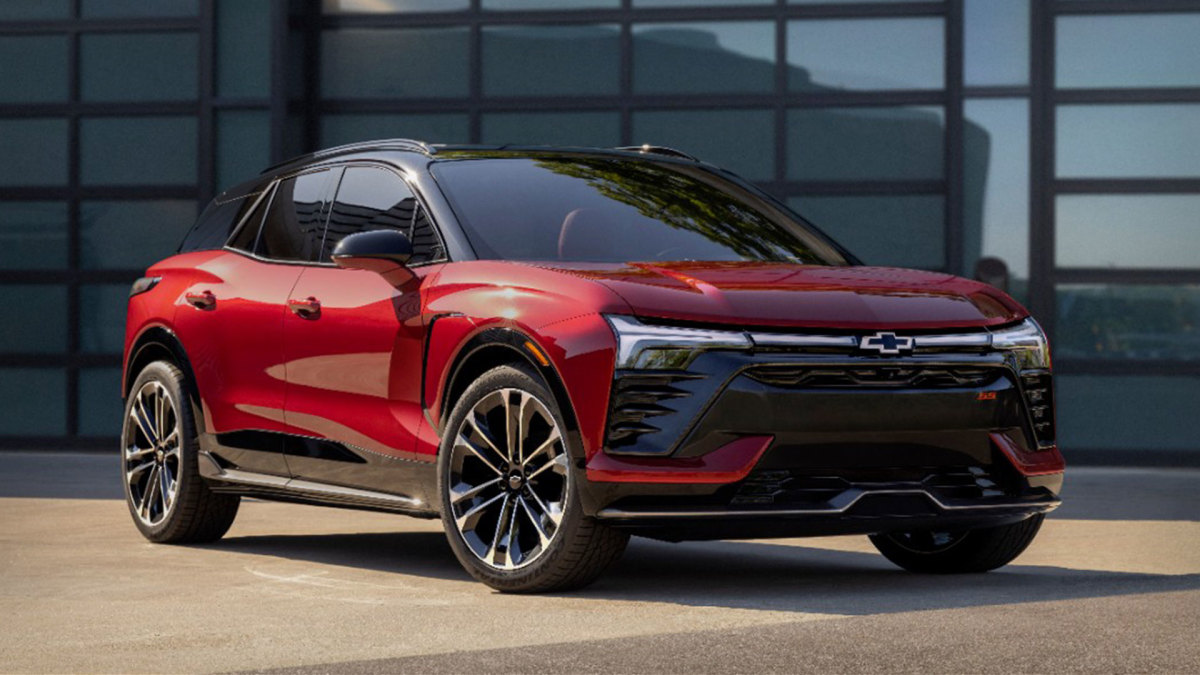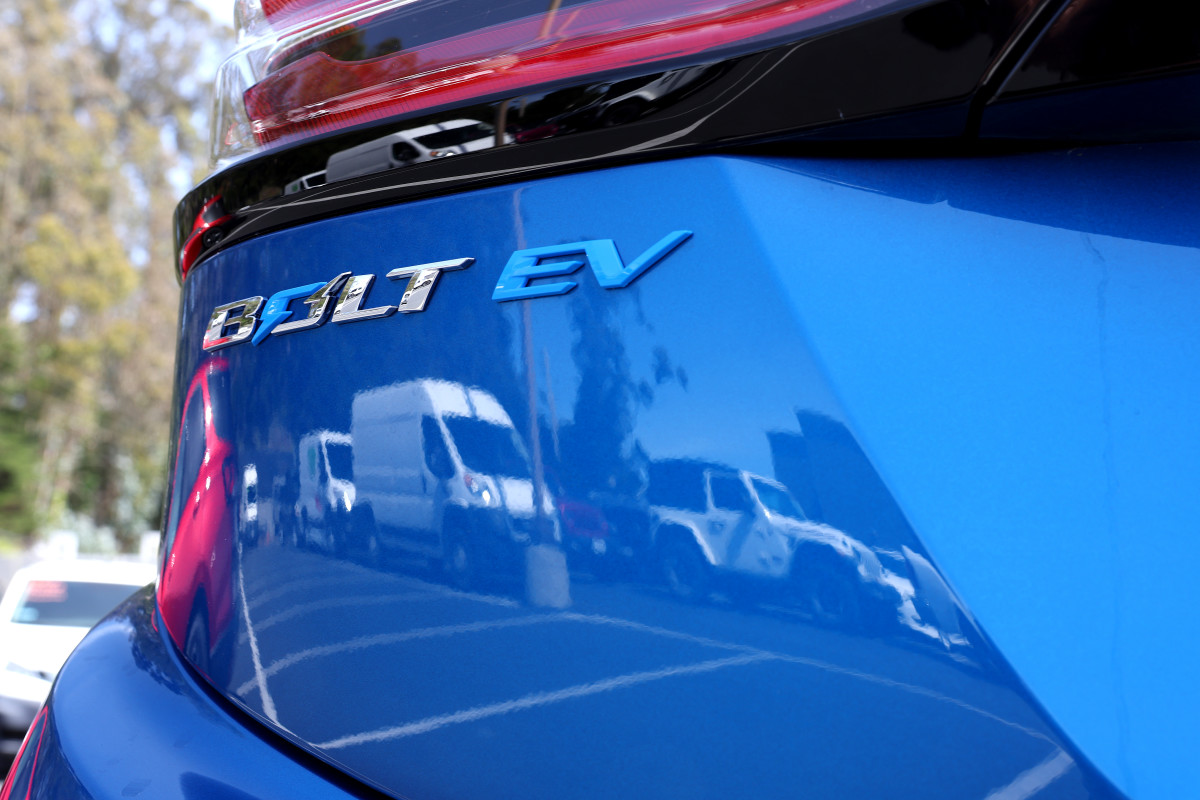
General Motors’ (GM) -) argues that United Auto Workers (UAW) should end their strike to avoid the risk that competitors outmaneuver it in the electric vehicles market.
Indeed, there's a lot at stake. Electric vehicles are increasingly displacing internal combustion engine (ICE) vehicles, and disrupting General Motors' plans could lead to lost market share, and, possibly, end its dominance as America’s top vehicle manufacturer.
The company is already under pressure from one key rival that overtook it last quarter, pushing it out of the top three U.S. EV car companies.

The EV market is expanding
Consumers bought over 313,000 EVs in the third quarter, about 7.9% of all vehicles sold, according to Kelley Blue Book. Wall Street analysts expect EVs to account for 40% of passenger cars sold in America by 2030.
Related: Tesla’s EV throne is being chipped away at by this surprising luxury brand
So far, the U.S. EV market is dominated by Tesla (TSLA) -). However, General Motors pioneered EVs when it launched the EV1 to target environmentally conscious buyers in the 1990s.
The EV1 wasn't a hit, but Tesla's cars have gone mainstream because of the car company's focus on luxury and performance — a strategy that has allowed it to successfully compete in the electric SUV market with its Model X and Model Y and win over buyers in the under-$40,000 family car market with the Model 3.
General Motors, Ford (F) -), and Stellantis (STLA) -), which owns Dodge and Chrysler, were surprised by Tesla’s success. As a result, they’ve spent billions playing catch up on projects that are only now bearing fruit.
For example, an electric version of Chevy’s top-selling Silverado pick-up truck is expected to roll off assembly lines soon. The same is true for an electric Chevy Blazer and Equinox. It also has plans to reboot the Chevy Bolt, one of the best-selling EVs of the past few years.
More Business of EVs:
- A full list of EVs and hybrids that qualify for federal tax credits
- Here’s why EV experts are flaming Joe Biden’s car policy
- The EV industry is facing an unusual new problem
General Motors' efforts can’t happen soon enough. It’s far from the only major automaker knee-deep in designing and launching new EVs. Dozens of new models are expected to launch in the coming year, clearing the way for an extensive reshuffling in market share.
We're already starting to see the impact. Total U.S. EV sales increased by 50% in Q3 from last year, and, of companies with more than 1,500 EVs sold last quarter, eight saw EV sales more than double from one year ago.
As a result, Tesla's market share slipped to 50% from 62%, and GM's market share across Cadillac, GMC, and Chevy EVs dipped to 6.4% from 7.3% last year.
General Motors slows while Hyundai sales surge
The growing availability of Hyundai's new EV lineup may be one reason General Motors lost ground in EVs last quarter.
Hyundai sold 11,665 Ioniq5 EVs last quarter, up 143% from Q3 2022. It also sold over 5,000 of its new Ioniq6 EVs, and nearly 2,900 Kona EVs, up 184% from last year.
Altogether, Hyundai sold 19,630 EVs in Q3, giving it a 6.3% market share, up from below 3% last year. Including its high-end luxury Genesis brand sales, the South Korean car company sold over 1,400 more EVs in the quarter than General Motors, pushing GM to fourth among EV manufacturers in the U.S. last quarter.
Hyundai's rapid rise in the EV market may continue if the auto strike impacts General Motors' EV production, reducing available inventories at dealers. If so, the gap between the two automakers could widen.
Sign up to see what stocks we're buying now (General Motors isn't one of them!)







